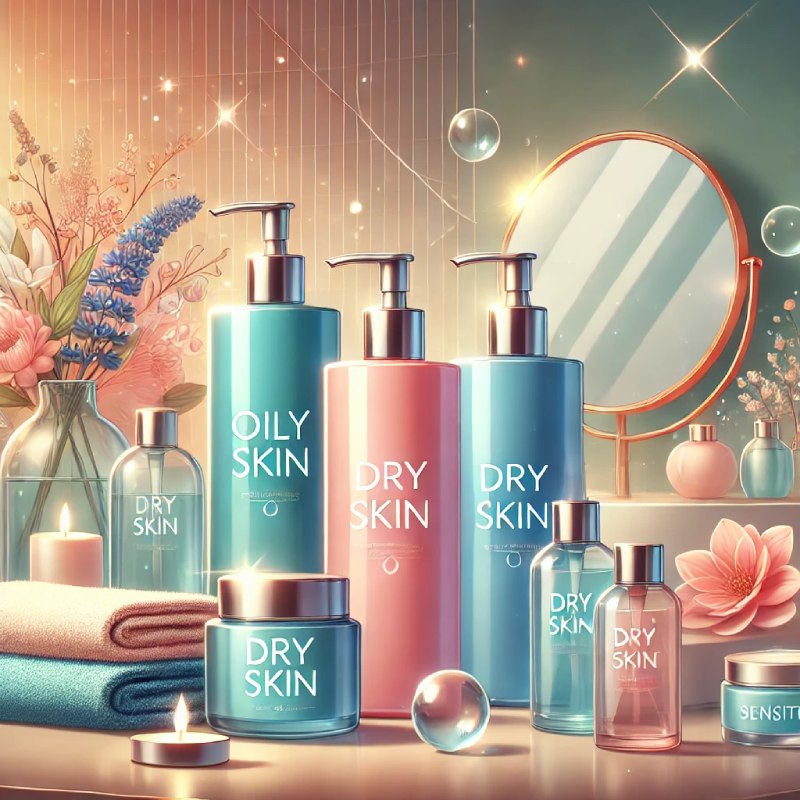
How Does Botox Work? Your Complete Guide to a Youthful Glow
Discover how does Botox work to smooth wrinkles and rejuvenate your look at Enhanced Aesthetics & Wellness in Pahrump, NV.
Home » Selecting Cleansers According to Skin Type

Struggling with breakouts or dryness? Master the art of selecting cleansers according to your skin type for a flawless routine.
Your cleanser is the foundation of your skincare routine. Selecting the right one according to your skin type ensures a clean canvas for other products to work effectively, avoiding irritation or breakouts.
Selecting a cleanser is more than picking something that removes dirt. A tailored choice supports skin health, balances hydration, and prevents potential damage caused by harsh or incompatible products.
Many people use harsh cleansers or products that don’t align with their skin type. These mistakes often lead to dryness, oiliness, or sensitivity, exacerbating skin issues instead of solving them.
Avoiding generic products and understanding your skin type can save you from common pitfalls. A personalized approach ensures your skin thrives rather than struggles with mismatched products.
Skin type determines how your skin interacts with cleansers. What works for oily skin may strip moisture from dry skin, while sensitive skin requires extra care.
Each skin type has unique needs, from hydration levels to pH balance. Choosing the right cleanser ensures your skin remains healthy and balanced without overcompensation or irritation.
Oily skin is characterized by a shiny appearance, enlarged pores, and frequent breakouts. It often feels greasy, particularly in the T-zone.
To care for oily skin, look for symptoms like midday shine, clogged pores, or acne-prone areas. Knowing these signs helps you pick the right cleanser that regulates oil production without over-drying.
Dry skin often feels tight, flaky, or rough, while dehydrated skin may appear dull with fine lines. Both conditions lack moisture but differ in their causes.
If your skin often feels uncomfortable or looks lackluster, it’s likely dry or dehydrated. Hydrating cleansers restore moisture, soothe irritation, and prevent further damage to the skin barrier.
Combination skin features both dry and oily areas, often with an oily T-zone and drier cheeks. Sensitive skin reacts easily to products or environmental changes.
Choosing a cleanser for these types requires balancing hydration and oil control. Gentle, fragrance-free options reduce the risk of irritation while addressing specific needs in different zones.
Cleansers for oily skin should include salicylic acid, glycolic acid, or tea tree oil. These ingredients target excess sebum and unclog pores.
Active ingredients like niacinamide also help regulate oil production while soothing inflammation. Avoid heavy, cream-based cleansers, which may worsen greasiness.
Foaming cleansers effectively remove excess oil and impurities. They leave the skin feeling refreshed without stripping it of essential moisture.
These cleansers are lightweight yet powerful, making them ideal for oily skin types. Look for sulfate-free options to avoid unnecessary dryness.
Avoid creamy or oil-based cleansers, as they can clog pores. Fragrance-heavy products may also irritate oily, acne-prone skin.
Stick to non-comedogenic options labeled “oil-free.” These ensure your skin remains balanced without adding to your oil load.
Look for hyaluronic acid, glycerin, and ceramides in cleansers for dry skin. These ingredients replenish hydration while repairing the skin barrier.
These components lock in moisture, ensuring your skin remains soft and supple. A good hydrating cleanser works gently without causing additional dryness.
Cream-based cleansers provide nourishment and hydration while effectively removing impurities. They’re gentle and ideal for parched, sensitive skin.
These cleansers form a protective barrier on the skin, preventing moisture loss. They’re especially effective in colder months when dry skin is more prevalent.
Sulfates can strip essential oils from the skin, worsening dryness. They’re commonly found in foaming cleansers but are harsh on delicate skin.
Switch to sulfate-free options to maintain hydration and comfort. This simple change can make a big difference in your skin’s health and appearance.
Combination skin requires a balanced approach. Gel-based cleansers can hydrate dry areas while controlling oil in the T-zone.
This dual-action ensures that neither dryness nor oiliness becomes overwhelming. Look for pH-balanced formulas to address both concerns simultaneously.
Sensitive skin thrives on gentle, hypoallergenic cleansers. Avoid fragrances, alcohol, and other common irritants to prevent reactions.
Stick to cleansers with soothing ingredients like aloe vera or chamomile. These calm the skin while ensuring a thorough, irritation-free cleanse.
Fragrances often irritate sensitive skin, leading to redness or itchiness. Opting for fragrance-free products reduces this risk significantly.
Look for labels like “unscented” or “sensitive skin-safe.” These products are typically gentler, ensuring your skin stays calm and comfortable.
Most skin types benefit from cleansing twice daily. Over-cleansing, however, can disrupt your skin barrier and cause irritation.
Stick to morning and evening routines to remove dirt and oil buildup. Adjust frequency as needed during seasonal changes or skin flare-ups.
After cleansing, a moisturizer helps lock in hydration. Choose one that complements your skin type and supports the cleanser’s effects.
For example, use lightweight moisturizers for oily skin and richer ones for dry skin. This pairing ensures your skincare routine remains balanced.
Seasonal changes impact your skin’s hydration and oil levels. Switch to more hydrating cleansers in winter and lighter options in summer.
Monitor your skin’s response to environmental factors. This flexibility keeps your skincare routine effective year-round.
Selecting cleansers according to your skin type is essential for maintaining healthy, balanced skin. Whether your skin is oily, dry, sensitive, or a combination, choosing the right product ensures effective cleansing without compromising your skin’s health.
At Enhanced Aesthetics & Wellness in Pahrump, NV, we offer personalized consultations to help you identify the best skincare routine for your skin type. From product recommendations to advanced treatments, we’re here to ensure your skin gets the care it deserves. Visit us today to experience professional expertise and results-driven skincare.
Enhanced Aesthetics & Wellness offers comprehensive skin evaluations and treatment plans tailored to your needs. Call us at (775) 877-9500 or book a visit online to start your journey toward glowing skin.
Q: How often should I change my cleanser?
A: You should consider changing your cleanser when your skin’s needs change, such as during seasonal shifts or if you experience reactions or breakouts.
Q: Can I use multiple cleansers for different skin concerns?
A: Yes, using multiple cleansers, like a gentle one in the morning and a targeted one at night, can address various concerns effectively.
Q: What should I do if my skin reacts to a new cleanser?
A: Stop using the product immediately and switch to a gentle, hypoallergenic cleanser. Consult a skincare professional if irritation persists.
Q: Are natural cleansers better than synthetic ones?
A: Not necessarily. The effectiveness of a cleanser depends on its ingredients and compatibility with your skin type, not whether it’s natural or synthetic.
Q: How can I tell if a cleanser is non-comedogenic?
A: Look for “non-comedogenic” on the label or research the ingredients to ensure they won’t clog pores. Products for oily or acne-prone skin often highlight this feature.

Discover how does Botox work to smooth wrinkles and rejuvenate your look at Enhanced Aesthetics & Wellness in Pahrump, NV.

Sculptra is an injectable bio-stimulator that can help to restore lost volume in the face. Sculptra injections can add fullness to the temples, cheeks, jawline, and other areas of the face and neck (and even the butt!) that have lost volume due to aging.
Subscribe to our newsletter and be the first to know about our latest news and special offers!
"*" indicates required fields

Sherry Cipollini
APRN, FNP-BC
Family Nurse Practitioner
Copyright © 2024 Enhanced Aesthetics & Wellness. All Rights Reserved.